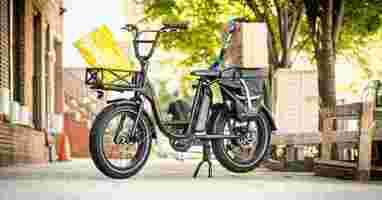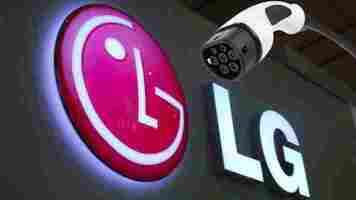Ebikes sped from zero to critical mass worldwide in 2021
If there’s one segment in the mobility sector that did spectacularly well in 2021, it had to be ebikes. This year we saw investments in ebikes explode. Many companies used the funding for R&D and market expansion.

We also saw legal and infrastructural amendments in the US, UK, and EU to promote ebike ownership, and a series of new business models. Let’s take a look:
Notable ebike investments in 2021


2021 was a fantastic year for ebike investments:
February: Super73 (Netherlands) raised $20M
February: Rad Power (US) raised $150M
March Rebike (Germany), an ebike reseller company, raised $10M
April: Dott (Netherlands) raised $80M to roll out ebikes
June: Vässla (Sweden) raised $11M
September: Dance (Germany) raised $16.5M
September: VanMoof (Netherlands) raised $128M
October: Rad Power Bikes (US) raised $154M
In October, I spoke to a couple of industry financiers to get the story behind ebike investments and see what it means for future ebike development.
A boost in ebike subsidies and legal standing
At the time of writing, the US government’s Build Back Better Act is unfortunately in jeopardy. Alongside infrastructural investments like roads and updating the energy grid, it includes a 30% electric bike tax credit , to help incentivize ebike adoption.
Further, In February, a federal E-BIKE act ebikes meant that ebikes are no longer classified as motor vehicles or off-road vehicles but are properly defined within three classes. Owners can therefore ride them on the road, unlike in the UK and Australia.
In August, the UK announced a £400,000 ($450,000) funding round for the eCargo Bike Grant Fund, to help and support small businesses to invest in electric cargo bikes. It helps businesses introduce cargo bikes and will cover up to 40% of the total cost, with a maximum of £2,500 ($2,800) for two-wheel models and £4,500 ($5050) for three-wheel models.
In December, the Council of the EU reached an agreement on updated rules for VAT rates . Under the new rules, Member States can apply for reduced VAT rates on ebike supply, rental, and repair, including electric bicycles.
Before, conventional bicycles and electric cars could have benefited under draft reforms. But electric bicycles were exempt from reduced or zero VAT. This meant the standard VAT rate of at least 15% would have been mandatory.
All in all, the agreement is a big step in recognizing the environmental and health benefits of bikes and helping make them more affordable.
New ebike business models
The year we saw the growth of new business models including new subscription models and service offerings:
In November, Arval unveiled the UK’s first scheme that enables employers to offer leased ebikes to their staff.
Arval partnered with two leading providers to supply and deliver a variety of bikes, including mountain, commuter, and folding models.
In Germany, Dance offers its ebikes as a subscription service. Its users pay a monthly fee (currently €59 or $566) covering their bikes and an all-inclusive support package.
Cowboy bikes recently expanded to the US and announced the launch of Cowboy Care . Cowboy users can simply subscribe to an on-demand, all-inclusive service. For $20 per month, riders can request a technician to come to them to fix a flat tire and more.
Pedal Me cargo bikes provide a low-carbon UK alternative to local parcel delivery. Customers can share delivery runs, reducing costs while using a sustainable option.
Pedal Me employs riders full-time. They get pre-scheduled shifts and hourly pay (instead of the per-delivery payment in the gig economy model). Pedal Me also has in-house cycling instructors and a thorough training program.
In New York, long commutes make access to employment challenging in many communities. While ebikes offer an alternative, they can be cost-prohibitive for many.
In response, The Equitable Commute Project, launched this year. It’s a three-year micromobility pilot program to directly provide up to 5,000 New Yorkers with access to affordable ebikes.
It’s backed by a consortium of NYC-based NGOs, community development organizations, academics, and companies.
Overall, it’s been an eventful year in all things ebike, stay tuned for more news and our predictions for what’s in store in 2022.
Apple ‘refused’ to discuss buying Tesla, says Elon Musk
After a Reuters report that Apple had revived Project Titan — AKA the ‘Apple Car‘ — Tesla CEO Elon Musk decided to share an interesting bit of insider information to share. Apparently, “during the darkest days” of developing the Model 3, Musk reached out to Tim Cook to discuss Apple buying Tesla.

Cook reportedly refused.
It’s surprising that Cook would refuse to even meet, given Apple has been hard at work on self-driving AI for years. Musk’s comments also seem to dispel any likelihood Apple would collaborate on self-driving tech with Tesla as well; rumors indicated there’s a chance Apple might sell or license its technology rather than come out with a vehicle altogether.
Musk also expressed doubt about claims in the Reuters report that Apple is working on a “monocell” battery; he claims it’s “electrochemically impossible,” and suggested the tech might instead be closer to Tesla’s structural battery pack the company discussed on ‘ Battery Day .’
Still, a lot could change between now and Apple’s rumored 2024 goal. In any case, it’s interesting to know that in an alternate timeline, Tesla — which has often been called “the Apple of cars” — could have actually been owned by Apple.
SHIFT is brought to you by Polestar. It’s time to accelerate the shift to sustainable mobility. That is why Polestar combines electric driving with cutting-edge design and thrilling performance. Find out how .
LG says ‘NO’ to phones but ‘YES’ to… electric powertrains?
Soon LG phones will be a relic of the past, as the company announced in April that on July 31 it will kill its mobile business worldwide .

To compensate for its losses in the smartphone market, the South Korean company will turn to the profitable EV industry. But don’t expect an G- or V- EV series. LG will focus on what it knows best: electronics, only this time for auto parts.
To that end, also on July 31, the company will officially embark on a joint venture with Canada’s Magna International, one of the world’s leading auto parts suppliers. LG has taken on a 51% stake in the enterprise. Interestingly, the agreement had already been announced in December 2020, but was pending until now shareholder and regulatory approvals.
The so-called “LG Magna e-Powertrain” will have its headquarters in Incheon in South Korea, but plans are underway for constructing bases in Michigan, US and in Nanjing, China, to secure customers from the biggest EV markets.
The joint venture will manufacture “ e-motors, inverters and on board chargers, and related e-drive systems to support the growing global shift toward vehicle electrification.” While Magna International will provide its expertise on electric powertrain systems, LG will bring to the table its knowledge in component development for e-motors and inverters.
That’s a very good deal for LG, given that Magna’s customers include General Motors, BMW, and Ford.
In fact, according to information disclosed to Nikkei Asia , LG predicts that the vehicle components division will make an investment return for the first time in six years in 2021. For that reason, the company plans to expand its sales by 15% per year, which is expected to pay off more than $8.8 billion (10 trillion won) by 2024.
Well, personally I won’t miss LG phones much, which I always found quite inconvenient, but I do hope the company will advance EV tech. Better luck this time, LG.
Do EVs excite your electrons? Do ebikes get your wheels spinning? Do self-driving cars get you all charged up?
Then you need the weekly SHIFT newsletter in your life. Click here to sign up .